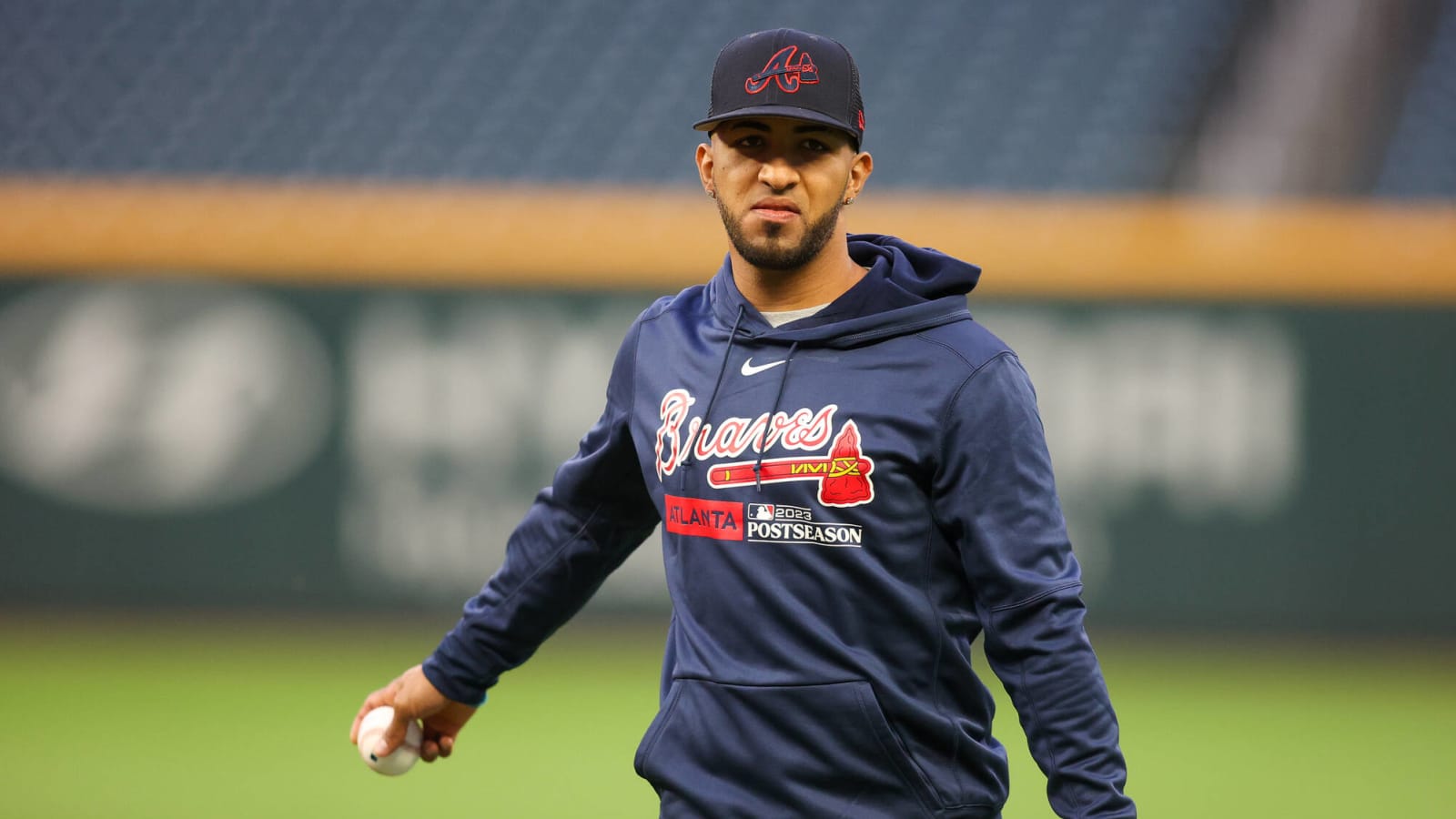
9:10 a.m.: Rosario’s contract is a minor league deal, tweets Andrew Golden of the Washington Post.
8:54 a.m.: The Nationals and free-agent outfielder Eddie Rosario are in agreement on a split contract that can pay the veteran up to $4M after incentives, reports Daniel Alvarez Montes of El Extra Base. The deal is still pending a physical. Rosario is represented by Rimas Sports.
Rosario, 32, is a veteran of nine big-league seasons who’ll be joining his fourth MLB club after spending six seasons in Minnesota, half a year in Cleveland and two and a half seasons with Atlanta.
He appeared in 142 games with the Braves last season, tallying 516 plate appearances and batting .255/.305/.450 with 21 home runs, 24 doubles, three triples, three steals, a 6.6 percent walk rate and a 23.6 percent strikeout rate.
From 2017-20 with the Twins, Rosario was a key presence in the middle of the lineup, popping a total of 96 home runs in 2002 plate appearances and hitting .281/.317/.493 — about 12 percent better than the league average, by measure of wRC+.
His bat has tailed off since that time, however. Rosario’s blistering run with the Braves following his acquisition at the 2021 trade deadline helped push Atlanta to the postseason.
His Herculean performance in that year’s NLCS won him MVP honors during that series. But on the whole, Rosario’s bat has been below average since departing Minnesota.
Over the past three seasons, Rosario has turned in a tepid .247/.295/.417 batting line (91 wRC+). He’s still shown some power, connecting on 40 homers and logging a .171 ISO (slugging minus batting average) in that time, but Rosario has become increasingly strikeout-prone along the way.
During that peak four-year run with Minnesota, Rosario fanned in just 16.5 percent of his plate appearances. That mark has climbed to 24.2 percent over the past two seasons.
Rosario has never walked much, but in the past, his plus bat-to-ball skills have helped to offset his anemic walk rates and justify his swing-at-everything approach.
That’s no longer the case. In 2022-23, Rosario swung more often than all but 13 big-league hitters (min. 500 plate appearances), but his contact rate ranked 265th of 318 in that same subset.
The issue is magnified on pitches off the plate. Rosario has chased outside the strike zone more frequently than all but seven hitters in that span but ranks 173rd in contact rate on pitches off the plate.
Those traits underscore the free-swinging Rosario’s problematic approach at the plate, but the lefty-swinging veteran can still punish mistakes in the strike zone, particularly against right-handed pitching. His career batting average and OBP lack any telling platoon splits, but the vast majority of Rosario’s power comes when facing righties.
Defensively, Rosario has experience in all three outfield spots but is best deployed as a left fielder. His sprint speed (28 ft/sec, per Statcast) still ranks comfortably above league average, but he’s never displayed the range for center field and his once-elite arm has deteriorated over the past few seasons.
As recently as 2020, Rosario averaged a huge 91.6 mph on his throws from the outfield, placing him in the 95th percentile of MLB outfielders. He was down to 85.1 mph in 2023, effectively placing him right at league average.
With the Nationals, Rosario can give manager Davey Martinez another veteran to compete for time in left field, joining fellow lefty hitter Jesse Winker in that regard.
Center field figures to be manned by Victor Robles, with Lane Thomas slated for everyday reps in right field. Rosario and/or Winker could also contribute as a designated hitter, but the Nats signed Joey Gallo to a big-league deal last month and still have Joey Meneses as well.
That gives the Nats plenty of options at first base, designated hitter and left field. Assuming the physical goes well, Rosario will be among the favorites for playing time in left field, perhaps in a platoon setting with righty-hitting Stone Garrett.
Rosario will also give Washington some depth to allow touted prospects and potential cornerstones Dylan Crews and James Wood to continue developing in the upper minors rather than rushing them to the big leagues.
It’s a low-cost, minimal-risk deal for a team that has looked light on experienced outfield depth and viable power threats in the middle of the order.
More must-reads:
- Which pitchers have the most career strikeouts for every MLB franchise?
- Watch: Grandson of Red Sox legend homers at Fenway Park
- The '2022 MLB strikeout leaders' quiz
Breaking News
Customize Your Newsletter
 +
+
Get the latest news and rumors, customized to your favorite sports and teams. Emailed daily. Always free!

